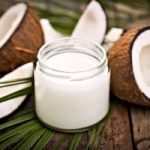Emu Oil Guide: What it Is and Health Benefits

100% Pure Refined Emu Oil
Curious about using emu oil?
The oils are made from the fat pads of the emu bird, one of the second largest living birds by height to its cousin, the ostrich.
Emu oil contains a blend of natural fatty acids and antioxidants reported to have powerful anti-inflammatory actions and thus can be used topically and orally to treat a number of health conditions.
However, how emu oil really works was previously unclear and researchers are now investigating the use of emu oil in complementary and alternative medicine.
This article will focus on what emu oil is, how they’re made, purported health benefits and how to choose the best kind.
The Skin Penetrating Power of Emu Oil

Nourish Your Skin with Emu Oil
The story of emu oils shows that it was originally used for medicinal purposes by the Aborigines of Australia. The natives traditionally used emu oil for the treatment of inflammation and to accelerate wound healing.
The indigenous healers may have been onto something…..
A study published in the International Journal of Pharmaceutics showed that a topically applied emu oil with curcumin lead to a stronger anti-inflammatory effect due to the improved solubility and permeability.
And researchers at the Department of Dermatology and Skin Science, University of British Columbia suggests that emu oil might promote wound healing by accelerating the growth rate of skin cells. The scientists believe that emu oil’s anti-inflammatory properties may make it a useful component in ointments and bandages for treating inflammatory skin conditions and wounds.
But what exactly is in emu oil that makes it different from other natural skin oils, such as olive oil and avocado oils?
Research on emu oil’s ingredients show it contains Oleic, Palmitic and Linoleic fatty acids. Fatty acids are essential components of natural lipids that help determine the structure and function of human skin.
- Oleic acid is a monosaturated fatty acid, also found in olive oil, that has skin moisturizing properties.
- Palmitic acid acts like an emollient to help soften the skin and lock in moisture.
- Linoleic acid is an omega 6 fatty acid found in other plant oils, such as rosehip, evening primrose, sunflower and safflower oils. It’s one of the building blocks for ceramides, one of the skin’s primary moisturizing elements.
Is Emu Oil Safe to Use? The oils are available in cosmetic and pharmacuetical-grades and it’s found to be non-comedogenic and non-allergenic.
List of Emu Oil Health Benefits
Research Studies – We take a closer look at the research behind the benefits of this natural skin oil.
List of Uses – Discover how to naturally treat acne, eczema, razor burn, dry cuticles and diaper rash.
Hair Loss – A closer look if you can really use this oil increase hair growth and stop hair loss.
Reduce High Cholesterol – Recent animal study found emu oils reduced cholesterol by 30% when added to a high cholesterol diet.
Stop Joint Pain – Its anti-inflammatory properties may help reduce or eliminate joint pain when you combine it other healing ingredients.
Wrinkles – Studies show that emu oils ingredients may help fortify the natural skin moisture barrier and may prevent the formation of fine lines and wrinkles.
Stretchmarks – Can you reduce those horrible red scars with this oil? Get the full story right here.
Buyer’s Guides, Product Reviews and Forum

Emu oil bought from an organic emu farm
When it comes to buying emu oils, you want to choose products that are produced to the highest standards.
Product reviews and buying guides can help you choose the best product for your needs. Many of the higher quality oils are endorsed by the emu oil certification programs.
Thunder Ridge Product Review provides information on this popular product sold at many health food stores and on-line retailers.
Complete Buyer’s Guide to Emu Oils – Will help you determine different grades of emu oils and how to choose the best products.
Emu Forums – Drop into the forum and learn how other people have used emu oil. We welcome your own comments and questions here.
Hme Page > Emu Oil Home Page









